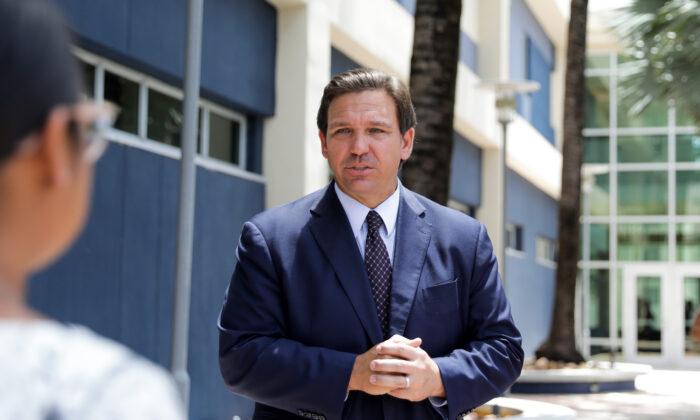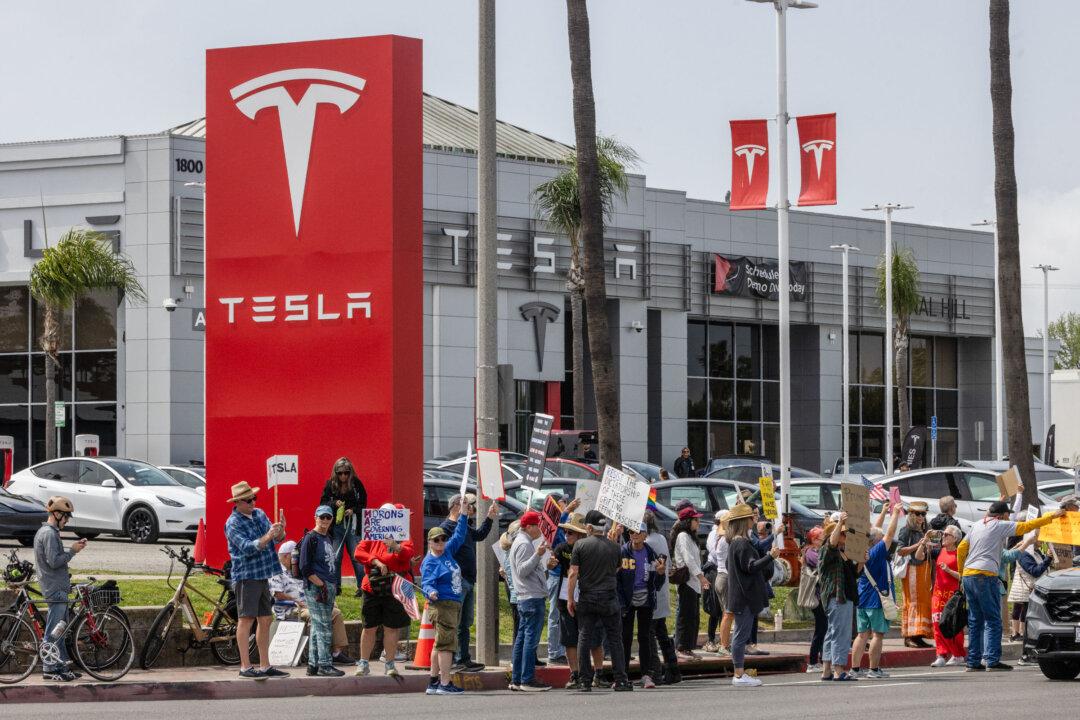All spoke passionately about their objections to buying oil from the South American country.
President Joe Biden banned U.S. imports of Russian oil on March 8 in retaliation for the invasion of Ukraine. Since then, U.S. diplomats have scrambled to find other energy supplies.

U.S. officials met with Maduro in the Venezuelan capital of Caracas on March 5 for the first bilateral talks in years. Venezuela has been under Washington oil sanctions since 2019.
Negotiating an oil deal with Maduro legitimizes and endorses his leadership, panelists passionately asserted.
“The answer is American energy independence,” DeSantis said, urging the Biden administration to end restrictions on domestic energy production and “unleash American production.”
He noted that gas prices had been climbing since Biden took office in January 2021, dealing a “huge blow” to families’ budgets.
“We could end up with $5 or $6 gas before you even know it,” DeSantis said.
“Biden’s answer is to prop up Nicolás Maduro,” DeSantis said. “So we’re saying here today, ‘No, we do not accept the fact that you are legitimizing a murderous tyrant.’
“And we stand with the people in Venezuela who are seeking freedom, and we stand with the people in South Florida, who want to see a free Venezuela.”
Above the roundtable stage was a large picture of Biden and Maduro greeting each other with wide grins. To the left was an image of a smiling Biden shaking hands with Russian President Vladimir Putin, and on the right was an image of Biden in a friendly greeting with Chinese leader Xi Jinping.

Maduro has led Venezuela since 2013. Some U.S. lawmakers have criticized the recent outreach to Maduro, who is under sanctions for human rights abuses.
After DeSantis spoke, Nuñez told of how her parents fled communist Cuba to the United States, while other family members went to Venezuela, now led by Maduro, “a murderous thug.” They then had to flee Venezuela as it descended into the chaos of socialism.
They made “their life there, they were able to establish careers and raise their children,” Nuñez said. “And sadly, they had to lose their homeland, not once, but twice, and they’ve had to move to other countries. So for me, it’s personal.”
Negotiating with Maduro is an insult to Venezuelans here, and those fighting for their freedom in that country, she said.
What’s more, she said, the Biden administration negotiating with Maduro “is a sign of weakness to our enemies across the globe” and “breathes new life into [Maduro’s] reign of terror.”
Florida has more immigrants from Venezuela than any other state, she said.

Rep. Mario Diaz-Balart (R-Fla.), who represents a chunk of South Florida, said that by negotiating with Maduro for oil, Biden is “betraying the people of Venezuela” and the “Venezuelan cause of freedom,” and he’s hurting the national security interests of the United States.
Panelist Carines Moncada, a Venezuelan journalist in Miami, said, “My concern is very simple. Why would you take the business of buying oil from one dictator and give it to another dictator?
“By sitting down with Maduro and by sitting down with the Venezuelan regime, you’re endorsing him as a leader of Venezuela, and you’re hurting the people of Venezuela. So how is that benefiting all the Venezuelans who are dying because they have no medicine, because they have no food, because they can’t afford to live the way they should be living?”
Under the Biden administration, the people of Venezuela are further away from freedom than they were under the Trump administration, she said.
Juan Fernandez, founder of Gente del Petróleo, said the United States used to import 2 million barrels of oil per day. Oil-rich Venezuela could be a safe, secure supplier of energy again for the United States again, he said, but only if Maduro is gone.
It’s wrong to replace Russian oil by buying from Venezuela now, he said, because Maduro is allied with Russia, China, and Cuba.
Oil prices have bounced up and down since the Russian invasion of Ukraine. On March 8, the price hit $128 per barrel. On March 11, it was trading at $112 per barrel. The United States had been importing 670,000 barrels per day from Russia in 2021.
Refiners in the U.S. Gulf Coast that had been importing Russian oil could process Venezuelan oil if a deal with Maduro moves forward.
California-based Chevron is the last U.S. oil producer still operating in Venezuela. The company has been barred from shipping oil from its joint ventures since 2020 and has pushed to overturn the ban.





